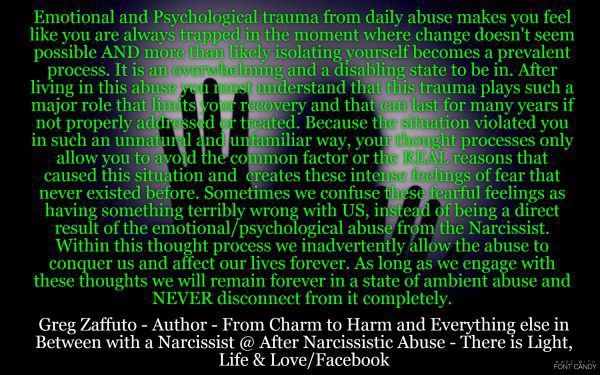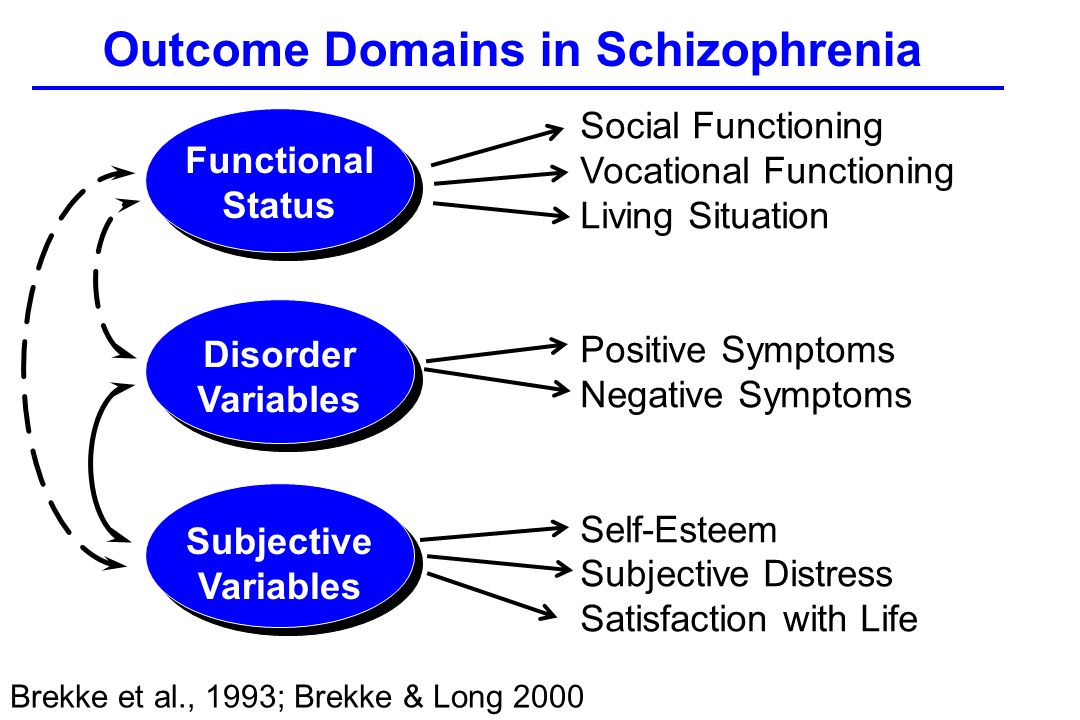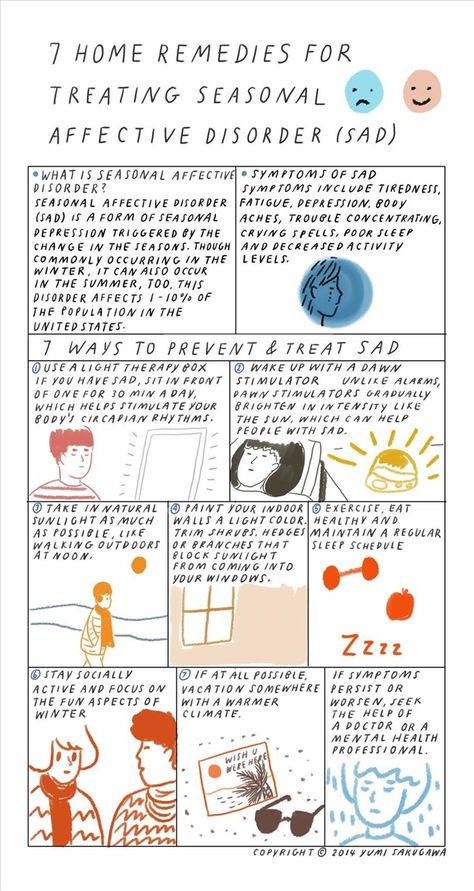Living with the narcissist
How to Live with Narcissistic Behaviors at Home
Living with someone who has narcissistic traits carries unique challenges. So we asked a bestselling author and expert on narcissism for a few tips.
We all have some level of healthy assertiveness and a desire to put our needs first, from time to time. This kind of self-advocacy helps us preserve our confidence and celebrate our accomplishments.
But with narcissism, it’s a different story. For many, living with someone who has narcissistic behaviors can be a distressing experience.
If you have such a roommate or loved one, know that you’re not alone, and support is available. There are several ways to stand in your power and cope.
When you interact with someone who has narcissistic traits, you may feel confused, frustrated, or invalidated. You may also be asking yourself why they behave this way.
It’s understandable. Folks with narcissistic behaviors may be oblivious to how their actions have hurt you, perhaps due to brain differences (as some research has observed) or a diminished ability to empathize with others.
Research from 2018 shows narcissistic behavior may stem from childhood abuse and neglect.
It can be useful to view their patterns from this vantage point: They may be someone who craves love, acceptance, and validation, but they don’t know how to get it in an authentic way.
Characteristics of narcissistic personality disorder
Narcissism exists on a spectrum. It may be diagnosed as narcissistic personality disorder (NPD) when it’s a clinically recognized recurrent pattern that pervades every aspect of life.
Some symptoms of NPD include:
- exhibiting a grandiose sense of self
- having limited empathy (more common in men, according to a 2018 study)
- exploiting others for social clout or resources
- feeling entitled to special treatment
- having fantasies about beauty, success, or power
- feeling special or superior to others
Quick tips for dealing with a narcissist personality
- Articulate non-negotiable boundaries.

- Learn the signs of gaslighting.
- Detach from emotional outbursts.
- Learn the art of negotiation.
- Fortify your self-esteem and self-soothing.
- Cultivate a tight and knowledgeable inner circle.
Whether your roommate or loved one has been diagnosed with NPD or you suspect that their behavior might fit the bill, there are several ways to navigate their narcissistic behaviors.
1. Articulate non-negotiable boundaries
“Boundaries are very much an inside job,” says Dr. Ramani Durvasula, a Los Angeles-based clinical psychologist and author of two books on narcissism.
“Setting boundaries doesn’t mean that you expect the other person’s behavior to change, but rather that you set a limit in your mind of what is acceptable, tolerable, and behave in line with that,” she explains.
“For example, if you set a boundary around communication or being late and that boundary is violated, then you have to make a choice on what to do for you — but not link that to their behavior. ”
”
What it sounds like
“I will not tolerate being spoken to that way.” If they persist, leave the room (safely).
2. Learn the signs of gaslighting
Gaslighting can be a manipulation tactic. It occurs when another person uses manipulation to cause you to doubt yourself or your sanity. As a result, you may feel confused or insecure, or lose self-confidence.
When someone gaslights you, it can sound like:
- “I was just joking.”
- “I never said that.”
- “That didn’t happen.”
- “You’re overreacting.”
- “I don’t know what you’re talking about.”
To combat this, you might consider getting as many interactions as you can in writing. You can keep a log of important notes, dates, receipts, and quotes in your phone or journal.
3. Detach from emotional outbursts
Engaging with a person during an emotional outburst is pointless, says Durvasula.
“Disengage. Don’t personalize their outbursts, as hard as it is, especially if they are directed to you. Recognize that dysregulated behavior, especially if it is hurtful or harmful is not acceptable, and give yourself permission to not engage,” she says.
Recognize that dysregulated behavior, especially if it is hurtful or harmful is not acceptable, and give yourself permission to not engage,” she says.
Durvasula adds that you can express your unwillingness to continue the conversation until they approach you calmly and healthily.
“You are not a psychological punching bag. It is their responsibility to learn to regulate, and you are not their therapist. It’s not your responsibility to teach them,” she adds.
4. Learn the art of negotiation
People with narcissism may not respond to traditional communication or “I” statements, as their empathy may be limited.
You could instead try to use the same transactional or cause-and-effect language that they use, but rather to healthily assert your boundaries.
What this sounds like
Rather than, “I feel hurt when you’re late for date night,” you can try this:
“Our reservation is at 6. If you’re not there by 6:15, I plan to leave and go to the movies with a friend. You’re welcome to join us, but I won’t wait for you to show up.”
You’re welcome to join us, but I won’t wait for you to show up.”
5. Fortify your self-esteem and self-soothing
It’s a myth that only people with low self-esteem end up in these dynamics, Durvasula emphasizes. “Plenty of people with a strong sense of self get pulled into these relationships for a whole range of reasons,” she says.
To self-soothe, you can do hobbies that make you feel good and build your self-confidence, particularly activities that prevent you from becoming isolated.
A strong sense of self and comfort with your own company can help you set better boundaries, she adds.
6. Cultivate a tight and knowledgeable inner circle
Durvasula advises that you try to keep a solid support network of those who are aware of this person’s behavior, which includes finding a therapist who “gets” narcissism.
A therapist can help you:
- understand what’s happening
- address co-occurring issues
- help you devise a safety plan
- provide a safe space to problem-solve
- validate your experience
Research shows that those who live with narcissism may be slow to change. You don’t have to wait for the relationship to become toxic, dangerous, or abusive to leave.
You don’t have to wait for the relationship to become toxic, dangerous, or abusive to leave.
Durvasula recommends evaluating your next move if you:
- feel isolated from loved ones
- doubt your sense of reality
- repeat the same arguments
- justify their behaviors
- repeatedly fall for false promises
“If these things are happening, this relationship may no longer be healthy,” she says.
It may take some time to recover. For some, this process could take months. For others, years. Each person is different.
To support your healing journey, consider:
- educating yourself about narcissism
- fostering new friendships
- leaning into your support network
- journaling for self-discovery
- pressing pause on romantic relationships
- working with a therapist
“The end of a relationship with a narcissist is not an end,” says Durvasula.
She adds that “it’s actually a beginning and a real opportunity to take what happened as a lesson and a wake-up call to honor your authentic self, celebrate the opportunity that the end of this relationship brings, and view healing and growth as a lifetime process. ”
”
Living with a narcissist may feel difficult, but it’s possible to preserve your well-being with strong boundaries, a solid support network, and a therapist who’s informed on narcissism.
You may also find it useful to attend a National Alliance on Mental Illness (NAMI) family support group in your area.
Also, consider adding these books to your wishlist:
- “Should I Stay or Should I Go?: Surviving a Relationship with a Narcissist” by Dr. Ramani Durvasula
- “‘Don’t You Know Who I Am?’: How to Stay Sane in an Era of Narcissism, Entitlement, and Incivility” by Dr. Ramani Durvasula
- “POWER: Surviving and Thriving After Narcissistic Abuse” by Shahida Arabi
How to Live with Narcissistic Behaviors at Home
Living with someone who has narcissistic traits carries unique challenges. So we asked a bestselling author and expert on narcissism for a few tips.
We all have some level of healthy assertiveness and a desire to put our needs first, from time to time.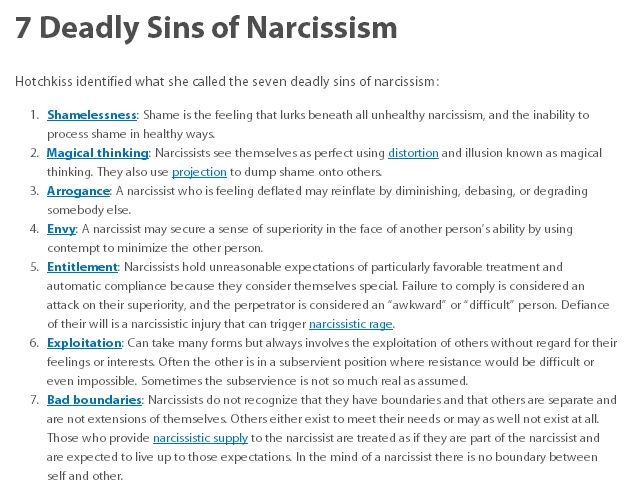 This kind of self-advocacy helps us preserve our confidence and celebrate our accomplishments.
This kind of self-advocacy helps us preserve our confidence and celebrate our accomplishments.
But with narcissism, it’s a different story. For many, living with someone who has narcissistic behaviors can be a distressing experience.
If you have such a roommate or loved one, know that you’re not alone, and support is available. There are several ways to stand in your power and cope.
When you interact with someone who has narcissistic traits, you may feel confused, frustrated, or invalidated. You may also be asking yourself why they behave this way.
It’s understandable. Folks with narcissistic behaviors may be oblivious to how their actions have hurt you, perhaps due to brain differences (as some research has observed) or a diminished ability to empathize with others.
Research from 2018 shows narcissistic behavior may stem from childhood abuse and neglect.
It can be useful to view their patterns from this vantage point: They may be someone who craves love, acceptance, and validation, but they don’t know how to get it in an authentic way.
Characteristics of narcissistic personality disorder
Narcissism exists on a spectrum. It may be diagnosed as narcissistic personality disorder (NPD) when it’s a clinically recognized recurrent pattern that pervades every aspect of life.
Some symptoms of NPD include:
- exhibiting a grandiose sense of self
- having limited empathy (more common in men, according to a 2018 study)
- exploiting others for social clout or resources
- feeling entitled to special treatment
- having fantasies about beauty, success, or power
- feeling special or superior to others
Quick tips for dealing with a narcissist personality
- Articulate non-negotiable boundaries.
- Learn the signs of gaslighting.
- Detach from emotional outbursts.
- Learn the art of negotiation.
- Fortify your self-esteem and self-soothing.
- Cultivate a tight and knowledgeable inner circle.
Whether your roommate or loved one has been diagnosed with NPD or you suspect that their behavior might fit the bill, there are several ways to navigate their narcissistic behaviors.
1. Articulate non-negotiable boundaries
“Boundaries are very much an inside job,” says Dr. Ramani Durvasula, a Los Angeles-based clinical psychologist and author of two books on narcissism.
“Setting boundaries doesn’t mean that you expect the other person’s behavior to change, but rather that you set a limit in your mind of what is acceptable, tolerable, and behave in line with that,” she explains.
“For example, if you set a boundary around communication or being late and that boundary is violated, then you have to make a choice on what to do for you — but not link that to their behavior.”
What it sounds like
“I will not tolerate being spoken to that way.” If they persist, leave the room (safely).
2. Learn the signs of gaslighting
Gaslighting can be a manipulation tactic. It occurs when another person uses manipulation to cause you to doubt yourself or your sanity. As a result, you may feel confused or insecure, or lose self-confidence.
When someone gaslights you, it can sound like:
- “I was just joking.”
- “I never said that.”
- “That didn’t happen.”
- “You’re overreacting.”
- “I don’t know what you’re talking about.”
To combat this, you might consider getting as many interactions as you can in writing. You can keep a log of important notes, dates, receipts, and quotes in your phone or journal.
3. Detach from emotional outbursts
Engaging with a person during an emotional outburst is pointless, says Durvasula.
“Disengage. Don’t personalize their outbursts, as hard as it is, especially if they are directed to you. Recognize that dysregulated behavior, especially if it is hurtful or harmful is not acceptable, and give yourself permission to not engage,” she says.
Durvasula adds that you can express your unwillingness to continue the conversation until they approach you calmly and healthily.
“You are not a psychological punching bag. It is their responsibility to learn to regulate, and you are not their therapist. It’s not your responsibility to teach them,” she adds.
It’s not your responsibility to teach them,” she adds.
4. Learn the art of negotiation
People with narcissism may not respond to traditional communication or “I” statements, as their empathy may be limited.
You could instead try to use the same transactional or cause-and-effect language that they use, but rather to healthily assert your boundaries.
What this sounds like
Rather than, “I feel hurt when you’re late for date night,” you can try this:
“Our reservation is at 6. If you’re not there by 6:15, I plan to leave and go to the movies with a friend. You’re welcome to join us, but I won’t wait for you to show up.”
5. Fortify your self-esteem and self-soothing
It’s a myth that only people with low self-esteem end up in these dynamics, Durvasula emphasizes. “Plenty of people with a strong sense of self get pulled into these relationships for a whole range of reasons,” she says.
To self-soothe, you can do hobbies that make you feel good and build your self-confidence, particularly activities that prevent you from becoming isolated.
A strong sense of self and comfort with your own company can help you set better boundaries, she adds.
6. Cultivate a tight and knowledgeable inner circle
Durvasula advises that you try to keep a solid support network of those who are aware of this person’s behavior, which includes finding a therapist who “gets” narcissism.
A therapist can help you:
- understand what’s happening
- address co-occurring issues
- help you devise a safety plan
- provide a safe space to problem-solve
- validate your experience
Research shows that those who live with narcissism may be slow to change. You don’t have to wait for the relationship to become toxic, dangerous, or abusive to leave.
Durvasula recommends evaluating your next move if you:
- feel isolated from loved ones
- doubt your sense of reality
- repeat the same arguments
- justify their behaviors
- repeatedly fall for false promises
“If these things are happening, this relationship may no longer be healthy,” she says.
It may take some time to recover. For some, this process could take months. For others, years. Each person is different.
To support your healing journey, consider:
- educating yourself about narcissism
- fostering new friendships
- leaning into your support network
- journaling for self-discovery
- pressing pause on romantic relationships
- working with a therapist
“The end of a relationship with a narcissist is not an end,” says Durvasula.
She adds that “it’s actually a beginning and a real opportunity to take what happened as a lesson and a wake-up call to honor your authentic self, celebrate the opportunity that the end of this relationship brings, and view healing and growth as a lifetime process.”
Living with a narcissist may feel difficult, but it’s possible to preserve your well-being with strong boundaries, a solid support network, and a therapist who’s informed on narcissism.
You may also find it useful to attend a National Alliance on Mental Illness (NAMI) family support group in your area.
Also, consider adding these books to your wishlist:
- “Should I Stay or Should I Go?: Surviving a Relationship with a Narcissist” by Dr. Ramani Durvasula
- “‘Don’t You Know Who I Am?’: How to Stay Sane in an Era of Narcissism, Entitlement, and Incivility” by Dr. Ramani Durvasula
- “POWER: Surviving and Thriving After Narcissistic Abuse” by Shahida Arabi
Living with a daffodil | PSYCHOLOGIES
128,294
Man among men
What is it like to live next to a man who is completely absorbed only in himself? Based on statements on the Internet, a "Book of quotes about daffodils" was compiled.
Doctor of Psychology Leon Zeltser analyzed it and came to the conclusion that the victims of narcissists are very well versed in the nature of their offenders.
Narcissists are cruel manipulators
Egoists tend to take advantage of their partner's sacrifice in order to completely subjugate him. Therefore, people who have been in close relationships with narcissists often report that they have been constantly manipulated. nine0003
Therefore, people who have been in close relationships with narcissists often report that they have been constantly manipulated. nine0003
“Imagine if someone proposed to your daughter something like this: “First, I'll be the way you want me to be. I will give you attention, love, and you will feel special. But when I understand that you are completely dependent on me, I will stop pretending and show my true face. I will become insensitive, deceitful and cruel, I will humiliate you and maybe even beat you. Are you trying to figure out what went wrong? But you'll never make it, so I'll never be the same. Deal? Deal?" nine0003
You would immediately understand that only a real psycho can offer such a thing, and, of course, you would dissuade your daughter from such a relationship. But for some reason, you can't protect yourself from such a danger…”
I realized that the concept of “beating the down” is typical behavior for a narcissist
“We loved these men, but why? Because in the beginning they made us feel special, loved, surrounded by care. Narcissists are masters of manipulation, they work with us subtly and precisely. They are literally brainwashing us." nine0003
Narcissists are masters of manipulation, they work with us subtly and precisely. They are literally brainwashing us." nine0003
“We never know what the response to our behavior will be. Because there is no stable system and it is impossible to predict his reaction. We are forced to fight in a constant attempt to please, in the hope of avoiding completely unpredictable anger. I realized that the concept of "hitting the down" is a typical behavior for a narcissist.
The victim is not immediately aware of his subordination
People who have lived with a narcissistic partner for a long time often say that these relationships “dried” and “bleeded” them. But the realization of this comes only when the victim has already reached a critical point. nine0003
“Narcissists are quite simple: they want support (admiration, reverence) and do everything to get it. But if they don't get enough of it, they get annoyed. The partner is confused - after all, he tried, tried to please.
“My friends have always supported me and never tired of reminding me that I am a human being, that my life has value and meaning. Friends said that the years spent with him changed me, made me nervous, anxious and doubting my abilities. But in the process, I didn’t realize how much I was changing.” nine0003
The narcissist will stifle all that is good in you. He will manipulate your psyche until you forget who you really are
“Why don't we break off relations with such people? … After all, the narcissist demonstrates with his whole appearance: you are nothing to me. And then your head is filled with the darkest thoughts. Depression, an acute feeling of loneliness, constantly pursuing failures and, as a result, self-hatred. We start asking ourselves, “How could I put up with this? What did he think of me if I allowed myself to be treated like that? nine0003
Narcissists are capable of inflicting deep trauma on the psyche
The words most often used in their confessions by people who have lived with egoists for a long time clearly characterize the degree and depth of the pain inflicted on them: loss, sadness, emptiness, degradation, humiliation, emptiness…
“I melted into his world, tiptoed around and worried if I was doing the right thing. Am I right? And when he suddenly showed me at least some minimal attention, I was happy like crazy! I acted like a hungry and loyal dog who had been thrown a bone. "He thinks of me!" — revolved in my head. This is so sad". nine0003
Am I right? And when he suddenly showed me at least some minimal attention, I was happy like crazy! I acted like a hungry and loyal dog who had been thrown a bone. "He thinks of me!" — revolved in my head. This is so sad". nine0003
“At first, the narcissist will stifle all the good that is in you. It will manipulate your psyche until you forget who you really are. Your own reflection will seem alien to you. Yes, it's going to be that bad, trust me."
“My narcissistic husband was not an intruder. He didn't want to hurt me just for fun. He just did it to achieve his goal. So that I depend on him, obey him, give him everything that he requires. And in the end, the pain turned into an end in itself for him. Because it was in a humiliated state that I was obedient. nine0003
Narcissists are dishonest
Narcissists are often spoken of as cheaters and liars.
For ten years I was completely under the control of my husband.He was my guide, my very life, and as a result completely destroyed it
“My ex-husband constantly lied to others about me. In the light of these lies, I was always bad and he was good, although in reality it was the other way around. I found out about this after we parted ways. It literally destroyed me. I just couldn't take the pain anymore!" nine0003
“The main habit of a narcissistic person is lying. He will lie, even if the only salvation for him is the truth.
Israeli writer and author of the book “Malignant narcissism. Narcissism Revisited" Sam Vankin openly admitted both his selfishness and his constant lies: "I'm lying. Obsessively, all the time and about everything. Why am I doing this? To be interesting and attractive. To attract attention, cause adoration, admiration, admiration and give rise to gossip. nine0003
Breaking up relationships as a way to salvation
Breaking up with narcissists can be a way out for people who are exhausted from dealing with narcissists, says Leon Seltzer.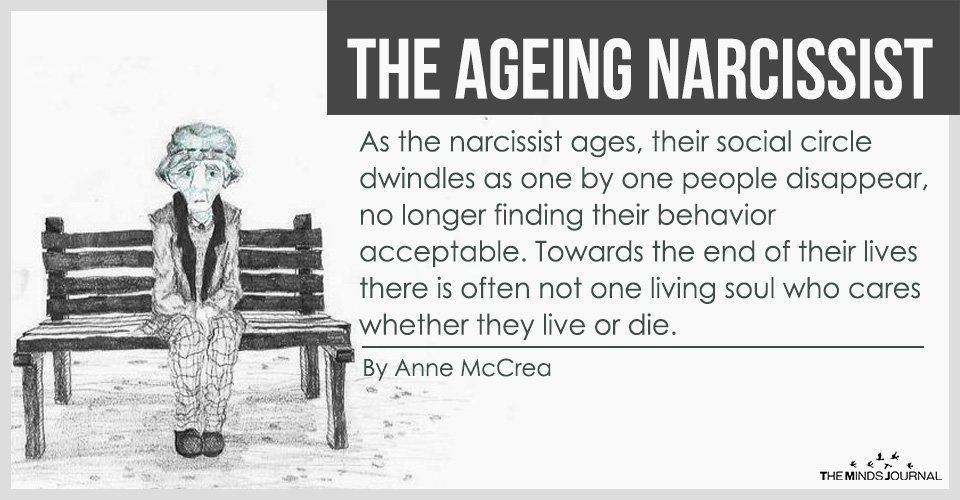
“Remembering all the ardent egoists with whom life confronted me, I understand that from the very first meeting it was clear that they were deeply selfish, immoral, addicted to sex, or there was some other wormhole in them. I lacked experience, intuition, to understand that you need to stay away from such people. I didn't know how to set boundaries." nine0003
“For ten years I was completely under the control of my husband. He was my guide, my very life, and in the end completely destroyed it. Now that I remember him, I don't feel anything. At all. There is no hate, no love, no pity - only emptiness. And that is great".
Text: Alexandra Terentyeva Photo credit: Getty Images
New on the site
How to survive the holidays with your family if your relatives are toxic: 7 tips
Why you need a value system: 3 ways to audit and change your life
“My fiancé's ex-wife and mother-in-law is a family”
Well-acquainted or first-time acquaintances: which women excite men more?
How to address by name correctly: a psychologist's opinion
7 important novels of 2022: addictive, frightening, unusual
How not to kill the liver, stomach and the whole organism on holidays: 5 rules and most of all I hate myself”
0 in my favor.
 A guide to a happy life, Natalia Weikselbaumer - LitRes
A guide to a happy life, Natalia Weikselbaumer - LitRes * * *
© Weikselbaumer N., text
© Weikselbaumer K., illustrations (part 1)
© Shal L., illustrations (part 2)
© OOO AST Publishing House
YouWhile holding this book in your hands, as you scroll through page after page on your computer, you touch the page with your fingertip to turn it over, or you click with your computer mouse to scroll through what you have read. Whatever point you touch, knowing at least a little the laws of physics, you understand that this very point heats up slightly, completely imperceptibly for you, this nano-touch changes the reference point that existed before you turned the page. nine0003
Now you are reading these lines with bewilderment on your face: “What is all this for?” Whereas in the world of infinitesimal quantities, a blow from the touch of your finger is a huge shock. Before you touched the page, the whole world contained in this book was inert, but your actions provoke changes at the level of invisible particles, the consequences of which you don’t even know yet.
The energy that has arisen as a result of this is already beginning to change your life. These changes might not have happened if you hadn't picked up this book and moved your eyes along the lines, sometimes licking your finger to turn the page, feeling for the right point on the computer mouse to click. And the changes have already begun. With you and your life. nine0003
Gratitude
The most important and primary gratitude to my daughter Ekaterina. For me, she will always be Catherine the Great, as my grandfather used to say. I must say that I was very lucky, I would even say lucky to have my Catherine the Great, because she was always my first reasonable critic and first support. She willingly agreed to be my student if my knowledge of psychology required it, she was and remains my wise teacher. Undoubtedly, many thanks for the illustrations for the first part, painstaking work on the text of the book, patience with my verbal intricacies, sincere desire to correct the manuscript so that you, my beloved reader, can easily understand the meaning of what was written. nine0003
It is with great pleasure that I thank my friend, colleague and well-known media personality Natalia Kholodenko. It was she who, at the next evening conversation, insistently said: “You simply have to write a book! Take it and write it!” Then I replied that I had already started the book, but the content would be voluminous and, most likely, I would need a year, and possibly more, to which Natalya said, as she cut off, the phrase: “There is no need for a text of five hundred pages, right now start writing a brochure! Small, a few pages, but write it!” After these words, I put aside my first volume, which I had begun, and proceeded to the "pamphlet" that you now hold in your hands. nine0003
My recognition and gratitude to a chance acquaintance with a wonderful woman, Elena Dmitrieva, who, by a happy coincidence, became the editor of this book. Under her sensitive correction of complex sentences and the necessary understanding of written phrases, this book was born. Without her help, I would never have coped with such a responsible task, and only my desk in my office would have seen my manuscripts.
I also thank you, those who hold this book in their hands, because you need it. It is thanks to the questions, stories and requests of many of you that I have decided to reveal some of my knowledge about the world of energies. nine0003
I have collected them in the second part of the book, which can replace dozens of full-fledged consultations for you. All this is for your convenience and inner spiritual development.
Special thanks to my friend, teacher and healer Irina Kurts. Thanks to warm and friendly conversations with you, I have confirmed my decision to share knowledge. Irina, I love you infinitely. If you are reading this book, know that I wanted to capture these feelings for you on paper.
Without a doubt, special thanks to Tatyana Chernova for editing and editing, for the courage to work with the second part and help in bringing important information to light. nine0003
Many thanks to Lyubov Shal. It is solely due to her talent, vision and ability to feel the content in a visual interpretation that the second part of the book is illustrated with taste and meaning.
Dedication
Most often, books are dedicated to loved ones, children, brothers or dear, and sometimes famous people who have passed away.
I dedicate this book to women and girls who have come a long way in the world of male misunderstanding. They sincerely try to be caring mothers, good wives, wonderful lovers or best friends for the men they love. But, despite all this, they receive "slaps in the face of life" or such pushes in the back, in which "to stand on their feet." They are the same as I was once, they move on, become more experienced, smarter, more patient and more distrustful. They continue to learn how to live and try their best to be happy, but the next relationship again consists of misunderstandings and conflicts, and they ask themselves the same question: “Why? What am I doing wrong again?!” nine0003
I once asked myself this question and “polished” myself to ideal forms, and life with a partner did not bring the expected result, until I understood everything that I wrote about in this book. That is why I dedicate this book to those whose life is not the easiest. Most likely, this life has been like this since childhood, and the girls have long grown up, but they did not become happier from this. I know how you try to be cool, I know how painful it is to swallow tears and how strength ends, but where can I get them? - in this book. You will take them for yourself in this book. And I sincerely want the happiest life for you, because you deserve it! Read for pleasure, with the knowledge that everything written for you is not philosophy and reasoning, it is not even a set of theoretical instructions, this is a book of real life and ways out of dead ends. nine0003
That is why I dedicate this book to those whose life is not the easiest. Most likely, this life has been like this since childhood, and the girls have long grown up, but they did not become happier from this. I know how you try to be cool, I know how painful it is to swallow tears and how strength ends, but where can I get them? - in this book. You will take them for yourself in this book. And I sincerely want the happiest life for you, because you deserve it! Read for pleasure, with the knowledge that everything written for you is not philosophy and reasoning, it is not even a set of theoretical instructions, this is a book of real life and ways out of dead ends. nine0003
Introduction
A unique book in your hands!
This is the tool to achieve all your goals.
If you are interested in psychology, you will find here the answers to your questions in a clear, accessible language. For example, how to get out of sacrifice, resentment, stop being confused and become the mistress of life. Or how to earn money, live in abundance and harmony with yourself and other people.
Or how to earn money, live in abundance and harmony with yourself and other people.
If the world of energies is close, you will find answers to all the basic questions necessary for a prosperous life in a healthy body full of strength and resources. You will learn how to become and be healthy, how to heal your children and protect your home. How to create an atmosphere of love and wonderful relationships with a partner, child, parent. You will see how money is made thanks to the energies, and you will understand how to make your world worthy of your dreams and plans. nine0003
After reading this book, you will receive psychological tools, as well as knowledge about the world of energies.
The book is unique in itself also because I wrote it based not only on the psychological education and energy gift of my ancestors, but also on my own experience.
I will explain to you how energy affects the quality of life and how psychology helps to reveal inner pain and strengths.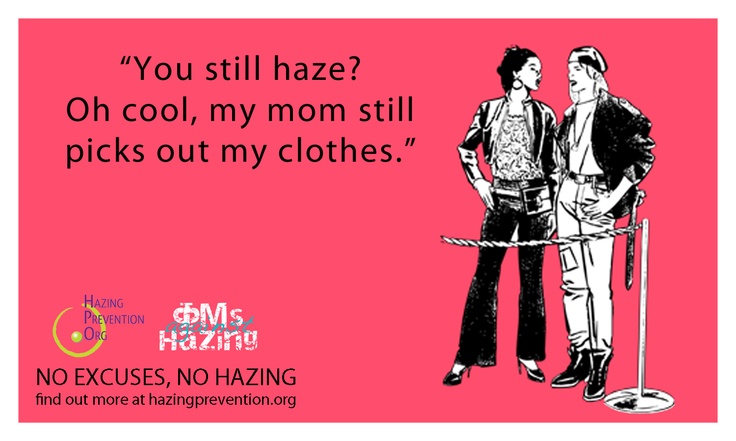
I know how to help you because I have helped myself and several hundred clients in individual therapy. nine0003
I will show you some examples from people's lives, tell you about myself, and give you the keys to the doors of a satisfied life.
Take this unique tool, use the knowledge that is gathered here.
Two parts with different approaches in one edition - that's the strength. It will be an amazing journey.
When you close the book, having read it to the end, you will begin a new life. Be sure to thank yourself for this step on the way to a happy future.
Happy reading! nine0003
Living with a narcissist
8:0 in my favor
A guide to a happy life
Part I
- I can't do this anymore! And you know, so many beautiful guys looked after me at school ... Whoever looked at me now, what I turned into, living with this egoist, I wouldn’t believe it!
- If I ask you to describe your husband in two or three words, what would those words be?
- Smug selfish despot!
- I heard you.
Okay, let's get it right.
1:0
The retinue makes the king
I may disappoint you at the outset, but there are no tyrants. As well as there are no eternally nice kind people. And before you perceive information and learn strategies on how to win in a no-win situation, remember well and realize this phrase: “The retinue makes the king.” It's the suite! Remember this. And remember always when you find yourself in difficult situations. nine0003
Each person in the palette of his personal characteristics has many more qualities than one, in this case called "tyrant".
Any tyrant can be a victim (of a situation, circumstance, another person), he can also be a rescuer, a persecutor, a hero, a loser, a coward, the soul of a company, a Romeo in love, an insensitive beast, or a passionate and tender lover. Agree, you didn’t start your acquaintance with a slap in the face and the phrase: “Ah! What a man, how original, I take it! ”, Well, no.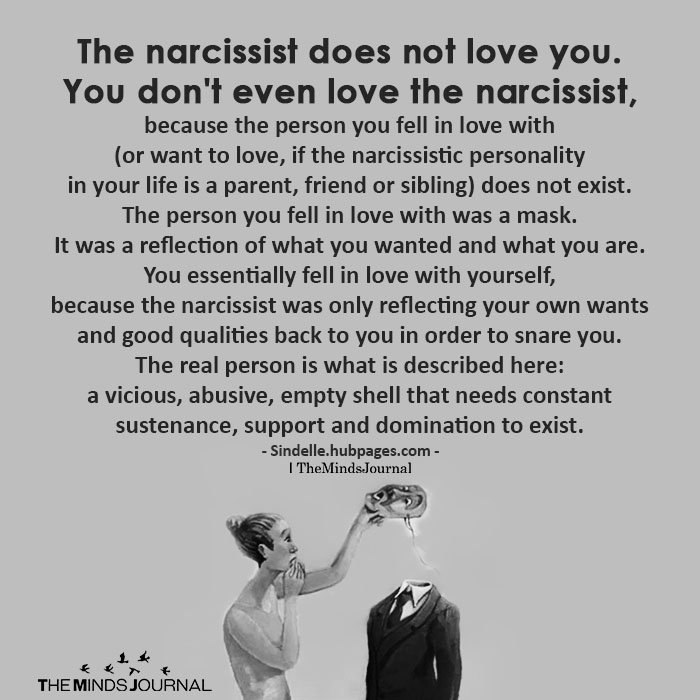 This suggests that your partner was not a tyrant all the time, which means that the statement “I live with a despot” is not entirely correct. nine0003
This suggests that your partner was not a tyrant all the time, which means that the statement “I live with a despot” is not entirely correct. nine0003
Let's go back to our retinue. After all, you already know what exactly the retinue makes the king. You are this retinue. This directly means that the king will build his behavior only in accordance with what is included in the "mosaic" of relations: the puzzles must match in the picture, otherwise the king loses his comfort. I explain. For the first time, the husband raised his hand to his wife (out of drunkenness, because of swearing or out of his own stupidity, it doesn’t matter) - something happened that hadn’t happened yet. And now the main thing is that it happened, and the offender is unconsciously waiting for your reaction. He is not yet ready to assess the situation and figure out how to proceed further. Moreover, his external behavior does not matter: he can be silent or aggressive, where aggression can act as a subconscious defense in the event of a possible attack. nine0003
nine0003
He waits for a reaction and receives (suppose) his wife's fear: she becomes afraid of him, puts her head on her shoulders and, to make things worse, tries to be meek and does her best to please the king. She, without realizing it, accepts the role of the victim. And, what is most disgusting, with his example and words, he begins to accustom children to this role: “Son, you don’t stick your head out while the folder is drunk”, “Daughter, pretend that you don’t hear, he will make some noise and fall asleep, don’t go, otherwise will start swearing "...
There are women who accustom their friends to the role of a victim: "Len, don't come to us, let's meet in the park better... no, I can't do it today, let's reschedule it for tomorrow" or even their parents: "Mom, you're with him better not get in touch, otherwise you will tell him something, you will leave, and then he will arrange this for me at home because I complained to you. Familiar? Vo-o-o-t: this process is called: "The retinue makes the king. "
"
Do you catch the essence of the initial mistake in your reaction to your partner's misbehavior? nine0003
“At first there was a kind of normal guy, and such a polite one, he gave flowers…”
The reaction of the woman described above is a typical reaction of the victim. If you know this from personal experience, I will explain why you reacted the way you did. There are several options.
Option 1
This pattern of behavior is familiar to you. Your parents lived exactly according to this scheme: your father beat your mother, and she tried once again not to run into trouble when he was out of sorts. Grandparents, a neighbor with Uncle Igor, “yes, everyone lives like that, anything can happen,” only the craziest phrase “beats means loves” is missing. nine0003
And since this situation is familiar, you will unconsciously look for people with whom you can build exactly such relationships, or you will artificially create situations that are familiar to your subconscious.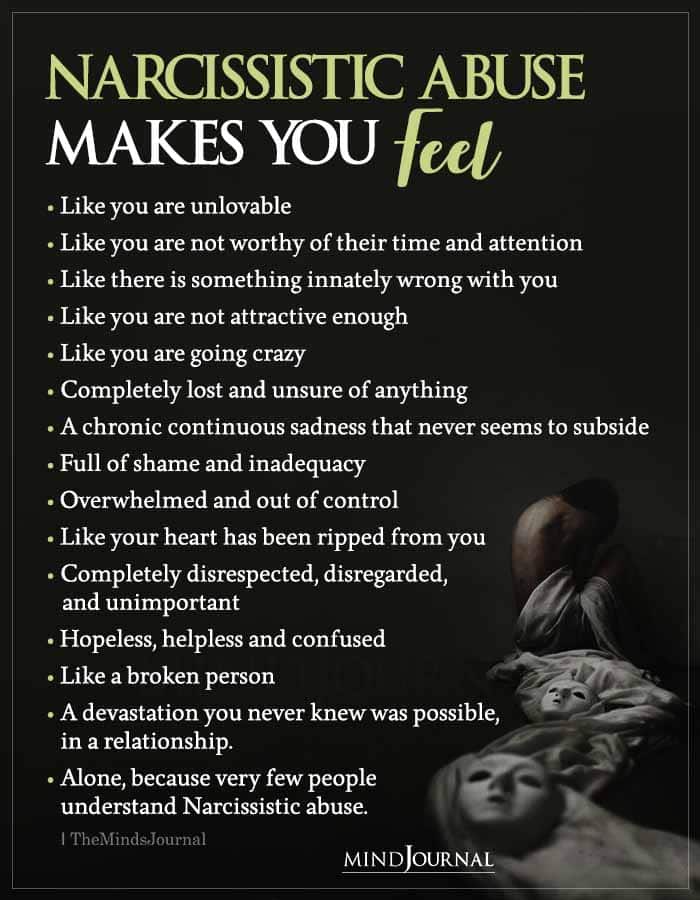
This is not nonsense, it's just that everything that is familiar to us is read by the subconscious as "safe" - we know what to do in such cases, we have already been in them, we are familiar with it. You know how to behave in such a situation, where to bend, how to dodge, where to remain silent, and where to attack. You already know all this. And if you know this, you are not afraid. Your subconscious is not afraid to enter into a "war", it spent all its childhood on "combat exercises". For him, the familiar "battlefield" is more comfortable than the unknown "park of serenity and idyll." Is the principle clear? nine0003
Moving on.
Option 2
"Nothing, but a man in the house." That's exactly what "none", but your unconscious program, laid down once by Aunt Lida, is working! Once you heard that it’s a shame to spend your whole life in girls, and now: “People can get worse, well, once he swung, so he apologized. Well, it’s not like “girls” to walk all your life, where can you find them, princes? And the girlfriend yells in her ears: “Fool! File for divorce! Hit once, it will only get worse! But no, the girlfriend is clearly jealous, you think, she herself without a man, so she doesn’t want me either . ..
..
This happens, let's move on.
Option 3
It's so convenient for you. Don't believe? Now I will open your eyes to not very pleasant, but true things. Look honestly at your relationship.
“Oh, you don't like my figure? Have you looked at yourself? But who needs you, drunk in a day, who will tolerate this? Where else can you find such a fool? Nowhere!” - this monologue is by no means a “bitter truth-womb”, but a very convenient position.
Do not take care of your body, do not develop, do not work on yourself, allow yourself a sin or mistake, because: “What about yourself ?!” nine0003
Such a position is very thin ice: you not only tend to support your partner’s despotic inclinations in this way, but you will provoke new conflicts where you can poke your face in the dirt in order, firstly, to avenge the past, and secondly, this is really comfortable.
Understanding the nature of your oppressive relationship with your spouse, you can either change this relationship by changing yourself and your attitude towards it, or leave such an alliance.
We will consider both options in detail, but first you need to understand exactly why you "invited" such a person into your life? Yes, yes, that's exactly it. He didn't come in by mistake because he mistook Lyudkin's door for yours. This person (with a tendency to overwhelm you physically or mentally) is your guest. nine0003
I continue to write a book...
My plane "Chelyabinsk - Moscow" has gained altitude, the neighbors at the window, a young couple with a two-year-old blue-eyed angel, are trying to decide who will take Nastenka to the toilet:
- Sash, where are you going, I'll take you her.
- Marin, I'm closer to the exit, it's easier for me.
- Yes, it's not scary that I won't get through, or what?
- Marin, let me go.
– Come on, I got up anyway.
- As you wish.
Squeezing through Sasha and my knees, Marina “climbed out” into the corridor, straightened her disheveled hair and, tired of these inconveniences, exhaled air somewhere on the floor of the plane. nine0003
nine0003
I got distracted from writing the book because the question that popped into my head was “Why? Why did you, Marina, need all this now?! You yourself are gradually accustoming your husband to inaction in raising your child, a couple more such cases, and he will not offer help (men do not like it when their actions remain devalued and pushed under the plinth), and this is a direct refusal of the offered help. You teach Nastenka to address questions and requests exclusively to you. And most importantly, you are exhausted with this lifestyle: it is inefficient, no matter how you look at it!” nine0003
And now I will “explain” to you, Marina, why you are doing this. I mean, you put on two costumes at once: the “comfortable woman” costume and the “victim” costume.
All women in relationships with men are divided into only two categories, there is no third: a beloved woman and a comfortable woman. Moreover, they pass from the quality of “beloved” to the quality of “comfortable” solely on their own initiative, mistakenly believing that they don’t leave comfortable women (it’s so convenient with them).
Breaking the illusion - they abandon the convenient ones (they depreciate, find lovers or leave the family) and try to be good husbands specifically for their loved ones (sometimes capricious, self-satisfied, demanding), with such mistresses, a beloved woman keeps her man in good shape. nine0173
Still don't believe the victim's costume is comfortable? Watch Marina: “I can handle this toilet better myself” (unconscious sense of self-importance, goodness), in other words: “I am better - you are worse.” Further: “Look, what kind of wife you have - all by yourself, all by yourself, where else can you find such a woman?” (do not throw this exactly).
And if Marina does something in half an hour that Sasha doesn’t like, then the reaction will be instantaneous: “Sasha, while you were stuck on your phone, I’m with the child: now to feed, then to the toilet, then to play, and I’m so tired, Are you still yelling at me?" is a great opportunity to feel right. If Marina had heard all this, she would certainly have said: “What kind of nonsense ?! What do you understand in a strange family? nine0003
Until I started family therapy, I don't understand anything about someone else's family, you're right, but I understand about the unconscious programs that control you, and I'll tell you right now where your unconscious programs will lead you if you don't stop.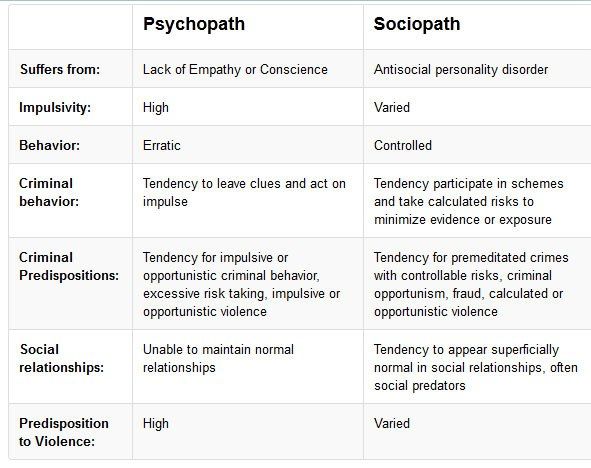 And if you don't control them, they will control you for the rest of your life.
And if you don't control them, they will control you for the rest of your life.
This is a great story in the course of writing a book, but it could also be a good place to talk more about the nature of relationship number three.
It is beneficial for you to live with a tyrant
A tyrant, a narcissist, an egoist, you can designate it as you like, a person who suppresses your interests and in most cases dominates your relationships. You yourself chose just such a person for yourself, and not just chose, but over time “polished” him to a “cut” called “tyrant”, “narcissus”, “egoist”. Why You Need It? Are you crazy?
No. You are just a girl, who at one time was not praised by her parents, underestimated by teachers, who did not receive admiration: “Oh, what a good girl is growing!”, And this is vital for you! Every child needs this in order to feel his belonging to this world, his usefulness, the love of his own mother, finally! After all, if you are weak, worthless and useless, it makes no sense for you to be in this world, there is not even a reason to cling to why you should live, and this means death, in other words, for your childish subconscious, this is death. nine0003
nine0003
You grew up in an environment where you were... well, how can I say... "neither here nor there" - like not ugly, but no one admired, like not stupid, but no one praised, like she tried to do something, but no one noticed. That is, self-worth on a ten-point scale, God forbid, a C grade, but how to live with such self-esteem? In the subconscious, with such a figure on the rating scale, you die!
So, without realizing it, you are raising your self-worth to a five, or even a six, based on comparison with a bad guy, and raising self-esteem against a completely miserable background is not far from the queen! And sometimes you take so many things on your fragile shoulders and drag that there is not enough scale for how valuable you are: a dozen smokes on the sidelines against the background of all your “attempts” to be cool. Do you understand? nine0003
And now honestly, without looking around, without sprinkling ashes on your head and without remembering “how would they all manage without you”, set yourself an honest number:
1____________________10
Until you have the strength of mind to honestly evaluate yourself, you will not get off the ground.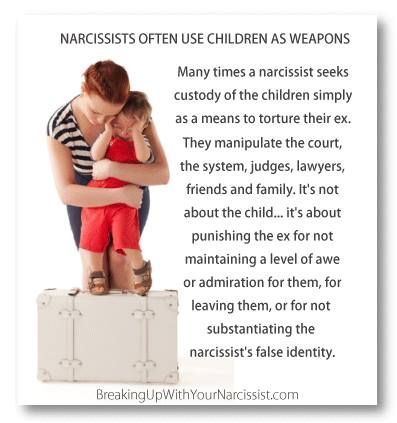 You must reach this honest bottom of the truth, so that you have something to push off from in order to start building a new life.
You must reach this honest bottom of the truth, so that you have something to push off from in order to start building a new life.
Under the designation "tyrant" we mean a person who is despotic, who wants to control everyone and everything, often putting pressure on the interlocutor. May behave hysterically, not always adequate to the situation, with a pronounced desire to manipulate. The character can be both strong, strong-willed, and weak, capricious. It does not always resort to physical violence, often this pressure is purely emotional. nine0173
A capricious adult child - an egoist or a narcissist - can behave in the same way.
One day a girl with an enviable fate for all her friends came to see me. She met her future husband at an inexpensive nightclub while working as a dancer. Working conditions in the club did not allow the provision of intimate services to guests, the guests knew these rules, but sometimes they offered meetings for a fee on the side. Some agreed, some did not. Regina needed money, so she accepted the man's offer to meet for a substantial reward. In addition, the man was young and pleasant in appearance, it seemed to the girl that there was no reason to refuse such an offer. nine0003
Some agreed, some did not. Regina needed money, so she accepted the man's offer to meet for a substantial reward. In addition, the man was young and pleasant in appearance, it seemed to the girl that there was no reason to refuse such an offer. nine0003
Regina did not have to be persuaded, in 20 minutes of a private dance the issue was resolved positively for the client. After the meeting, the couple agreed on the next meeting, so Regina became a constant "companion" of nightlife during Roman's business trips to this city. Between them there was an infatuation and even, perhaps, some passion, they missed each other and the relationship became more and more intense.
Roman decided to forgive his future darling for her past dissolute life and made her an offer to live together (which Regina happily agreed to without even thinking), and after another 6 months they signed. nine0003
How not to "Happy End" from the film "Pretty Woman" [1] - live and enjoy such good luck. But the girl turned to me with the following: “My husband commands me and is not at all afraid of losing! I have to do everything as he said, and my disobedience leads to terrible scandals, besides, the scenes of jealousy are absolutely not adequate to the situation that has arisen. Where has all his love gone? We haven’t even lived together for three years, and the relationship is only getting worse, he starts to annoy me, but don’t give up all this now! nine0003
But the girl turned to me with the following: “My husband commands me and is not at all afraid of losing! I have to do everything as he said, and my disobedience leads to terrible scandals, besides, the scenes of jealousy are absolutely not adequate to the situation that has arisen. Where has all his love gone? We haven’t even lived together for three years, and the relationship is only getting worse, he starts to annoy me, but don’t give up all this now! nine0003
It is quite obvious that the relationship of this couple operates on the principle of "victim - tyrant".
Question: why is a noble, rich, interesting man, who took pity on a visiting girl, whom a hard fate brought to a nightclub, now behaves towards her like a ruthless beast? As a result, he makes her life even harder than she was before marriage.
From the point of view of the work of our subconscious, everything is quite simply explainable: one of the scenarios may look like this - Roman (consciously or unconsciously) wanted a girl with just such a reputation as a companion, because against the background of a lost dowry, he felt himself both a savior and cool guy.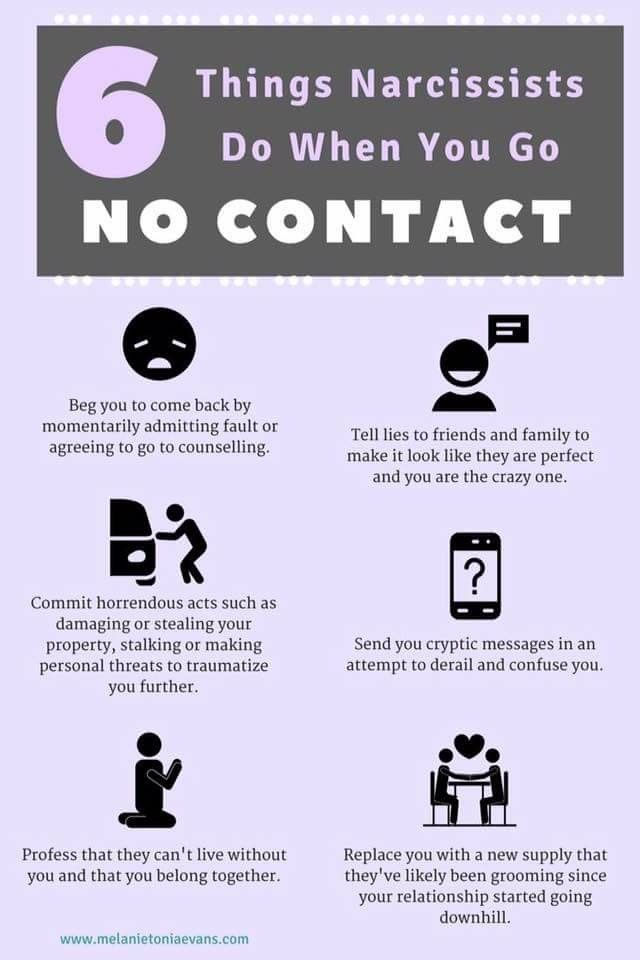 nine0003
nine0003
Regina gave herself up so quickly, without hesitation (both for the first time and for the second time) that Roman did not have time to invest even three cubic centimeters of his perseverance or two drops of effort to possess this woman.
Everything that comes cheaply is not valued dearly.
After that, events developed according to a very predictable scenario. Regina, grateful to the savior, got stuck in a bow to the floor, which the hero of our novel took advantage of. Joking aside, but seriously, the girl really felt that she was obliged, in gratitude, to fulfill every whim of her husband, who pulled her out of a bad life. In addition, she really wanted to behave exactly like a good girl - as proof of her decency against the backdrop of her past life (as if she had been brought to the club by a desire to lead a wild life, and not a hopelessness of the situation). Roman, pleased with his wife's behavior, "patched the holes" of the complex of an insecure man (who, oh, how grew up against the background of a girl from the "low class"), and "things went on. " And everyone was happy... for a while. But life is such a thing that has never stood still and will not stand still. What was great yesterday is commonplace today. nine0003
" And everyone was happy... for a while. But life is such a thing that has never stood still and will not stand still. What was great yesterday is commonplace today. nine0003
(Story within a story:
- Kitty, I made you sandwiches, you're on the night shift.
– You are the best pussy in the world! Thank you, my angel! , went to bed early, now I don’t want to get up anymore, I’m sorry, please.0003
- Fuck it! The husband plows, the money goes into the house, and in the house he didn't even deserve a sandwich before work!)
You can just smile, realizing the reality of life in some situations.
Let's go back to Regina and Roman: everything seems to be fine and everything is in its place, only Roman's inferiority complex has not gone anywhere, but Regina's victim complex has only intensified, more precisely, she entered the role and identified herself with the victim, practically merged with this role together. Roman’s subconscious “thinks”: “Look, everything is doing what it said. What if you scream? And stomp your foot? Oh look, listen. And intimidate? Oh, afraid. Goodoooo." So he stroked his next complex “on the wool”, it’s nice to feel like an important person who is afraid and obeys. nine0003
What if you scream? And stomp your foot? Oh look, listen. And intimidate? Oh, afraid. Goodoooo." So he stroked his next complex “on the wool”, it’s nice to feel like an important person who is afraid and obeys. nine0003
Is it worth saying that the appetite increases with eating? Costs?
I say: you simply must mark your boundaries! Not even because “let him know ours”, but because this is a more honest way of developing relations for both you and him.
He must be warned which “gate” he should not go beyond. And you, it is you who "give the go-ahead" to permissiveness!
No one will ever take away your honest right not to do what you don't want to do if you yourself don't put this opportunity into his hands! nine0003
Yesterday he asked you to show your phone: “Who is writing to you there?” Today he scolded you for not answering the phone, and tomorrow he will break half of your boundaries and set his own rules in your life.
(The comical situation lies in the fact that such a development of events leads to the degradation of both your and his personality, but this is not about that now.